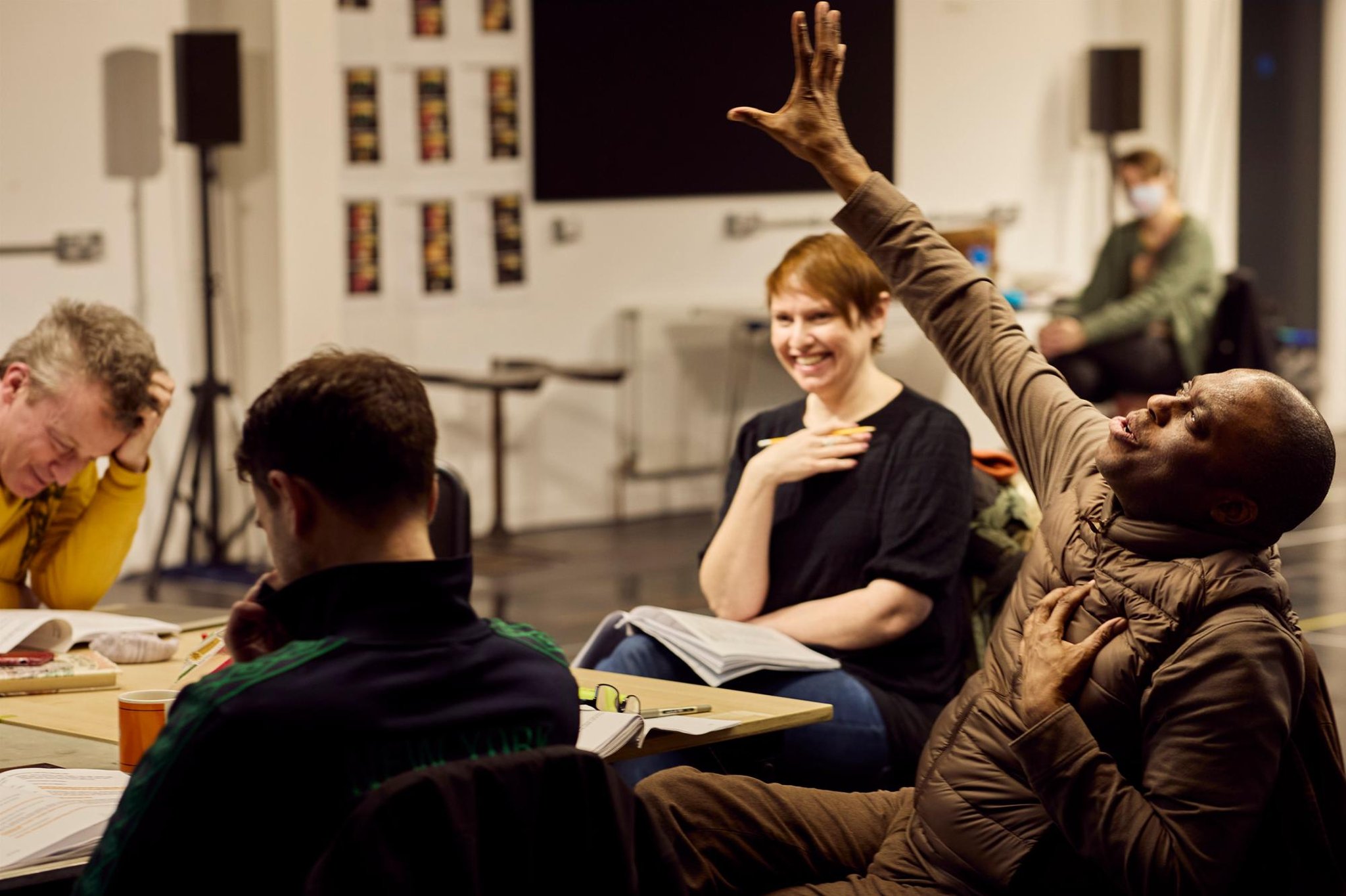Ben Harrison wonders if he was a little too young when he came across Roald Dahl’s The Wonderful Story of Henry Sugar. He must have been nine years old, but it was only at 11 that the story took off. “I read it again when I was old enough and I loved it,” says the director, brandishing the original hardback edition he has cherished ever since. “Dahl would have hated the term, but it’s aimed at tweens. It’s just a little more sophisticated.”
The centerpiece of a collection of short stories published in 1977, it is about the titular Henry Sugar who devotes three years to learning the esoteric arts in India. He read an essay on Imhrat Khan, a man who uses the power of meditation to see without using his eyes. It sounds like such a remarkable feat, Henry decides to acquire the same knowledge.
Register to our daily newsletter
The newsletter mute the noise
His studies with an Indian yogi teach him formidable skills. Before long, he is making ridiculous money in casinos where he can see through the cards and predict the fate of roulette. Money, however, cannot buy her love.
“He realizes that the acquisition of wealth, the thing that is so important to him and which is fundamentally his identity, only leads to suffering,” says Harrison, himself a yoga enthusiast. “It leads to not living a full life and not seeing the people around you who love you.”
Given the possibility of directing an adaptation, Harrison naturally thought of a playwright. Rob Drummond not only wrote entertainingly for teenagers, but was often drawn to magic. On his adult show Bullet Catch, he recreated a Victorian illusion in which a magician asks an assistant to point a loaded gun at his face, then catches the bullet in his teeth.
For family audiences he adapted The Broons and, in Mr Write for the National Theater of Scotland, he improvised a play based on the life of a young viewer.
“I’ve always liked this age group because they’re so open to anything,” says the playwright. “In Mr Write I had one, usually around 12 years old, and they were on stage with me the whole show. I like to write for that age group because there’s no no walls and less embarrassment factor; they are open, honest and themselves.”
With The Marvelous Story of Henry Sugar, Drummond and Harrison aim to entertain the whole family, much like a Pixar movie does. “Adults get a lot out of it too,” says Drummond. “I just have to trust the source material and believe that Roald Dahl knew what he was doing for this nebulous age group between children and adults. I didn’t have to do much research to find some relativity in the story for all ages groups because it’s about coming of age and discovering that you have power – and what you do with that power adults in the audience are here not too long ago , so they can all identify with it.
For his part, Harrison was thrilled to tell a story that involved magic, especially after the long months of lockdown where the show was impossible. “We use theatricality shamelessly,” says the director best known for his work with Grid Iron, Edinburgh’s site-specific theater company. “We were so hungry for it during those years. There’s magic, but there’s also a lot of stage magic. It’s a celebration of theatre.”
Fergus Dunnet, who performed tricks alongside Drummond in college days, is the magical consultant. “He was absolutely essential to delivering the show’s illusions and live effects,” says Harrison.
For this adaptation, a collaboration between Helen Milne Productions, Perth Theater and the Roald Dahl Story Company, Drummond added an extra twist. To make it even more theatrical, it’s not just Henry Sugar finding Imhrat Khan anymore.
“As a playwright, I saw an opportunity for interesting structure,” he says. “Dahl wrote a story within a story. I thought, ‘Why not put another layer on top? Let’s talk about a girl who discovers The Wonderful World of Henry Sugar, which is a book about a guy who find a book.’ I love the idea of having three time zones, talking to each other over the decades.”
The juxtaposition of the three stories from three different eras reminds us of what we have in common. “It doesn’t matter what decade you were born in, you have the same psychological problem,” says Drummond. “That is, ‘When I become powerful, when I learn to be myself, do I use that power for good or for evil?'”
It’s the first time The Wonderful Story of Henry Sugar has been adapted for the stage, perhaps surprisingly given how many of Dahl’s books, from James and the Giant Peach to Matilda, have made the transition. Leading the cast is David Rankine, who plays the title role of Henry Sugar, alongside Rosalind Sydney as surgeon Dr. Jane Cartwright.
Newcomer Eve Buglass as 14-year-old Mary is the entry point for 21st-century audiences. Being addicted to social media, with its instant gratification, she is quite the modern girl.
“What is precious to Henry Sugar is money,” says Drummond. “What’s precious to Imhrat Khan is fame and being on stage. I was like, ‘What’s the equivalent now?’ And it’s online likes or subscriptions. That’s the currency. So they’re all pretty much chasing the same thing, but in different ways.
The Wonderful Story of Henry Sugar is at the Perth Theater from March 24 to April 2 and on tour until April 17.
A message from the editor:
Thank you for reading this article. We are counting on your support more than ever, as the change in consumption habits caused by the coronavirus has an impact on our advertisers.


Comments
Post a Comment